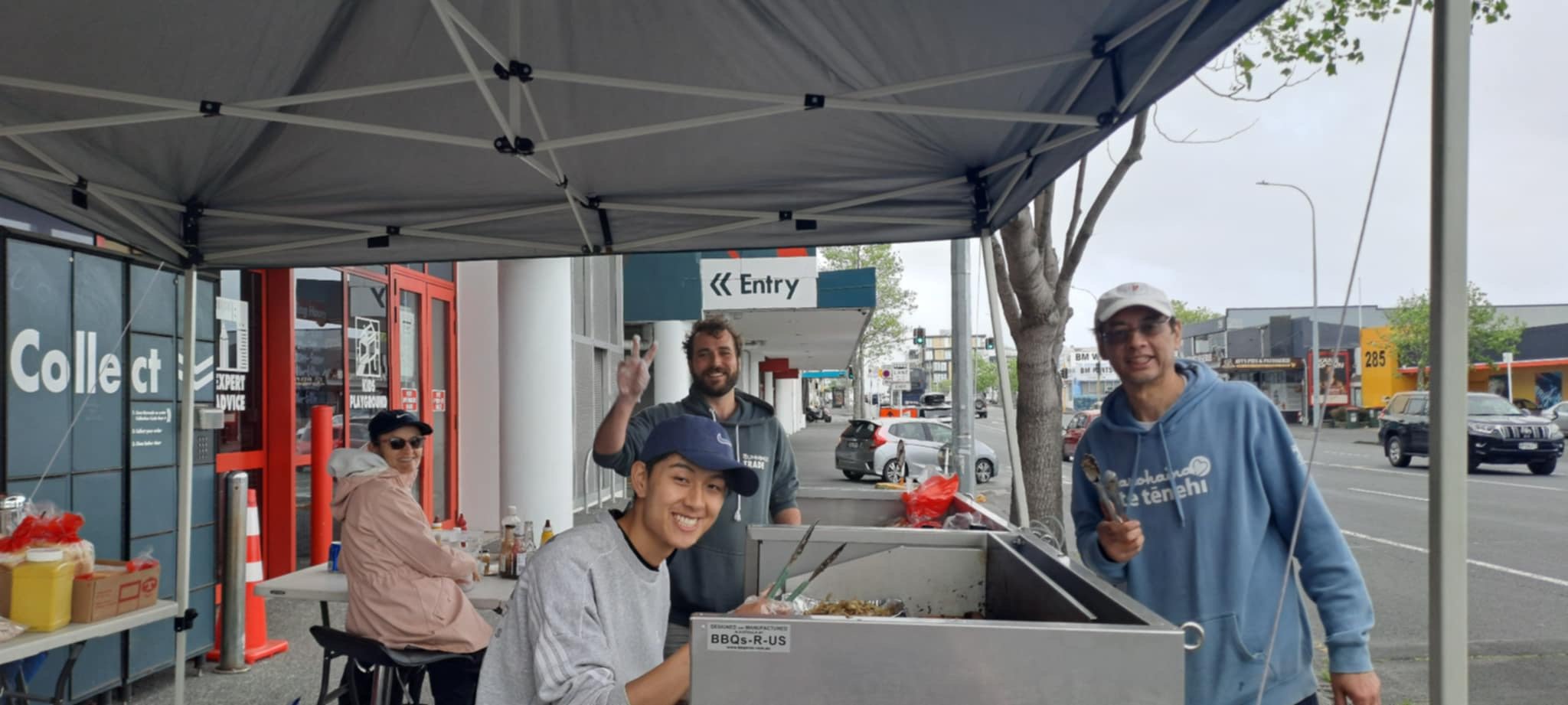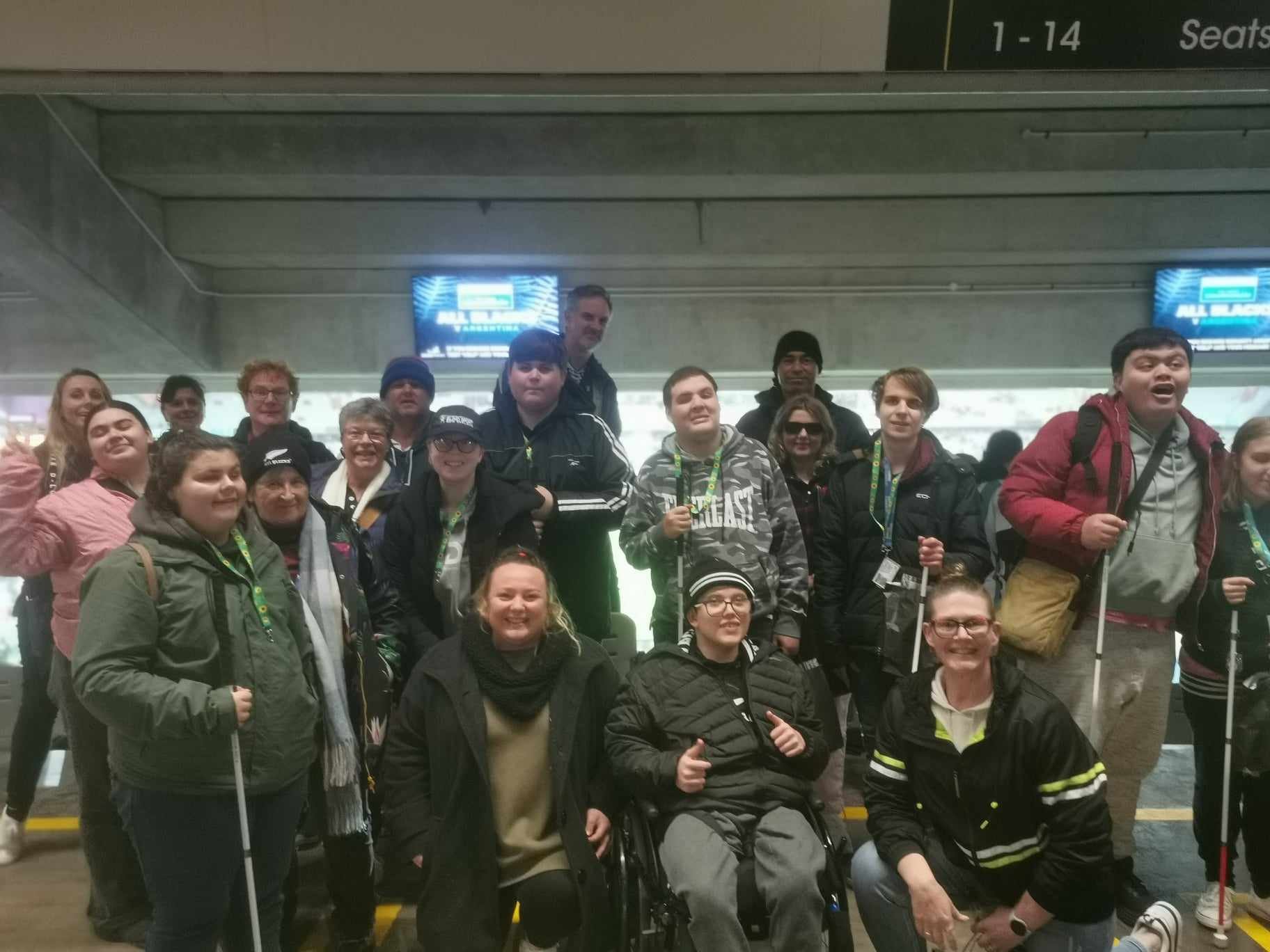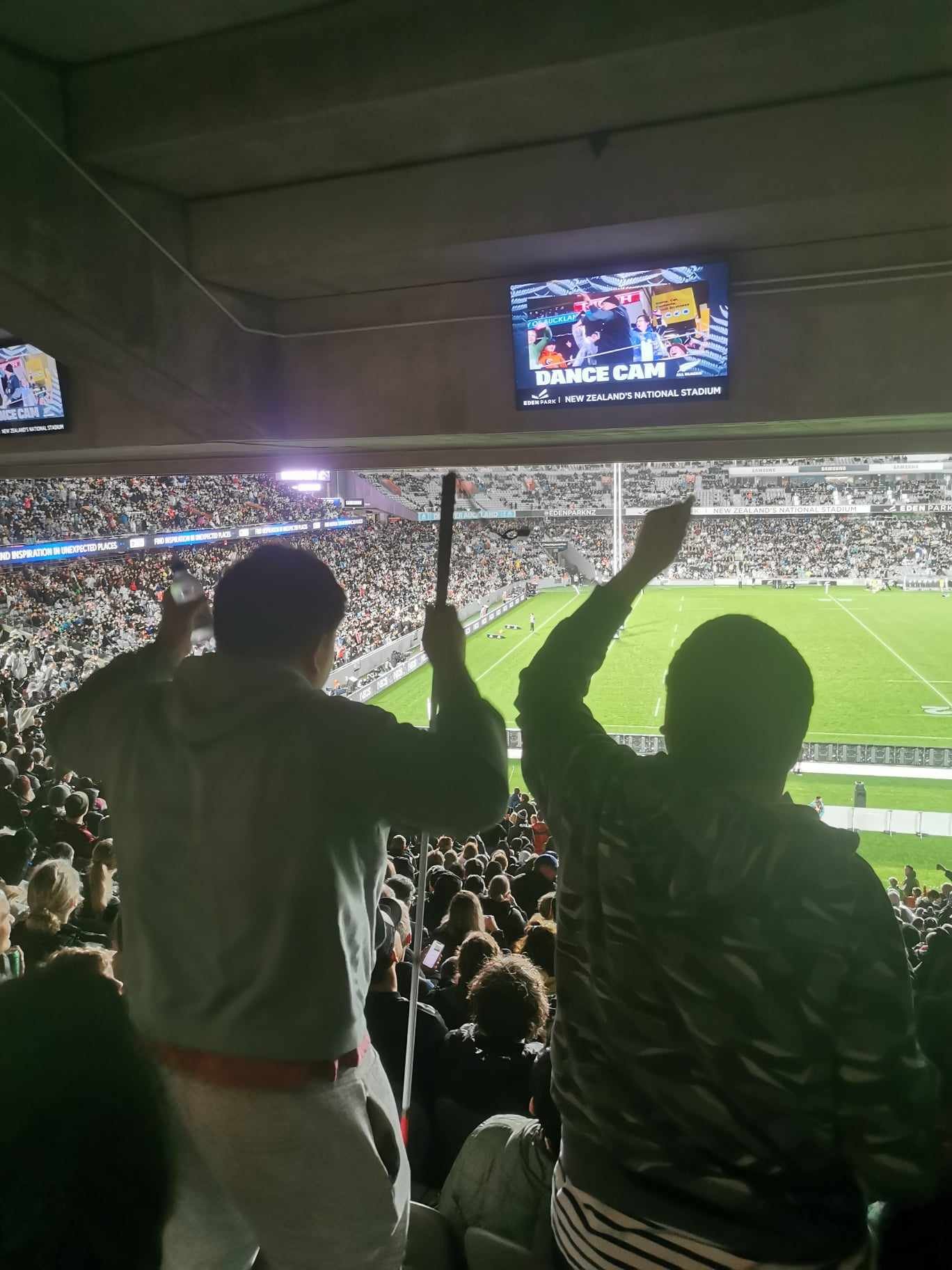Rhonda on an outdoor green turf court, picture taken from the net, and showing a black blind tennis ball mid air moving toward her in the back of the court
Blind Tennis or VI tennis is one of the fastest-growing adaptive sports globally, creating opportunities for individuals with vision impairment to enjoy the game in an inclusive, accessible way. With more than 30 countries playing and aspirations of joining the Paralympic roster in the coming years, Blind Tennis is making waves in the sports world.
A Growing Community
Blind Tennis is accessible to anyone with the right equipment. Players can join their local tennis clubs, fostering a sense of belonging and community. For many, the adaptive nature of the game is what keeps them coming back to the court.
In New Zealand, the sport is gaining traction thanks to passionate advocates like Lissie Cleave, who has worked tirelessly to promote BLV Tennis both locally and internationally. Following her involvement in the World and European Championships earlier this year, Lissie is preparing to compete in Adelaide this month alongside another NZ player, Rhonda Comins
Rhonda’s Perspective
Rhonda Comins, a B1 player, shared her journey with BLV Tennis:
Rhonda on tennis court leaning against the net, showing her back with NZL written on the back in large lettering
"Blind tennis has given me a chance to play tennis again. I have the muscle memory from when I was younger and could see. The sensation of sending the ball up and around the court is quite thrilling. Now I am developing a whole different skill set—angling my body and racket to carefully pat the ball with just enough strength to get it over the net. I listen carefully for the rattle in the ball and trace its path in my imagination.
The most exciting thing about competing in Adelaide is playing against others in my B1 classification. It’s a chance to see how much my training has paid off and how I compare with others. Representing New Zealand is a proud moment, and I am grateful to everyone who has supported me along the way."
What’s Next for BLV Tennis in New Zealand?
The future looks bright for BLV Tennis in New Zealand, with discussions underway to host a national tournament next year in partnership with Tennis New Zealand. Lissie and Rhonda’s efforts are helping pave the way for greater visibility and opportunities for players across the country.
How to Support
Rhonda and Greg (coach) plus volunteers hosting a sausage sizzle at bunnings Grey Lynn
All of these opportunities are self funded, and like most sports require personal investment and fundraising. To fund their upcoming trip to Adelaide, Lissie and Rhonda are running a raffle featuring fantastic prizes. To learn more or contribute, visit the Blind Tennis NZ Facebook page or the Blind Tennis NZ website.
How does Blind Tennis actually work?
While the foundational elements of tennis remain the same, BLV Tennis incorporates modifications to ensure fair and enjoyable play for all participants:
Court Adaptations:
Smaller courts and lower nets may be used, depending on the level of sight loss.
B1 players (those with no vision or minimal light perception) play on courts with tactile lines on the floor to aid orientation and a lowered net for easier access.
Audible Tennis Ball:
Players use a specially designed foam tennis ball that moves slower in the air and emits noise. The sound helps players track its movement and location as it bounces or is struck.Bounce Rules:
Players are allowed one, two, or three bounces before returning the ball, based on their vision classification.
These adaptations enable individuals with varying levels of vision loss to engage with the sport, enjoy its challenges, and hone their skills.
Whether as a player, supporter, or fan, Blind Tennis offers an exciting way to engage with an inclusive and dynamic sport. Grab an audible tennis ball and head to the courts—you might just discover a lifelong passion!















